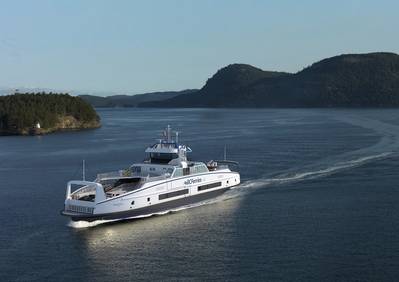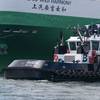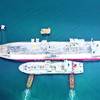Two SCHOTTEL-Driven Ferries for BC Ferries
German propulsion manufacturer SCHOTTEL has delivered propulsion units for two 81-meter road ferries to Damen Shipyards Galati, Romania.
Each of the newly built vessels ordered by Canadian operator BC Ferries will be equipped with two high-efficiency SCHOTTEL Twin Propellers. Once operational, they will serve the Northern Gulf Islands off the coast of Vancouver.
Improving environmental stewardship
“This class of vessels is very important for BC Ferries as it introduces a state-of-the-art, battery-electric, hybrid propulsion system,” states Paul Catsburg, Director Vessel Replacement program at BC Ferries. “This is some of the most advanced, clean marine technology in the world. The ships’ hybrid design is important for two main reasons: firstly, to improve environmental stewardship and, secondly, to reduce operating costs by evolving to full electric propulsion.”
The main propulsion for the ferries consists of a pair of electric motors – each rated 900 kW at 1,600 rpm and driving the SCHOTTEL STP 340 azimuthing thrusters. Provided with a propeller diameter of 1.85 m, the STP 340 enables a free-sailing speed of 14 knots. Beyond this, SCHOTTEL Twin Propellers are the ideal alternative for quiet vessels or applications with limited installation space, draught or propeller clearance. By sharing the load between two propellers, the risk of cavitation is minimized and tip clearance is increased. Both of these characteristics, in turn, lead to low noise and vibration levels. This concept also improves the efficiency of the propulsion system and reduces fuel consumption compared to single propellers.
Operating on Canada’s Pacific coastline
Built to Damen’s Road Ferry 8117E3 design, the vessels will be capable of carrying up to 300 passengers and crew as well as 47 vehicles. Both ferries will operate in the province of British Colombia on Canada’s Pacific coastline.
BC Ferries is one of the largest ferry operators in the world, providing year-round vehicle and passenger service on 25 routes to 47 terminals, with a fleet of 37 vessels. Serving as a vital transportation link, the company connects coastal communities and facilitates the movement of people, goods and services.
The road ferries are expected to enter operation in the spring of 2020.











